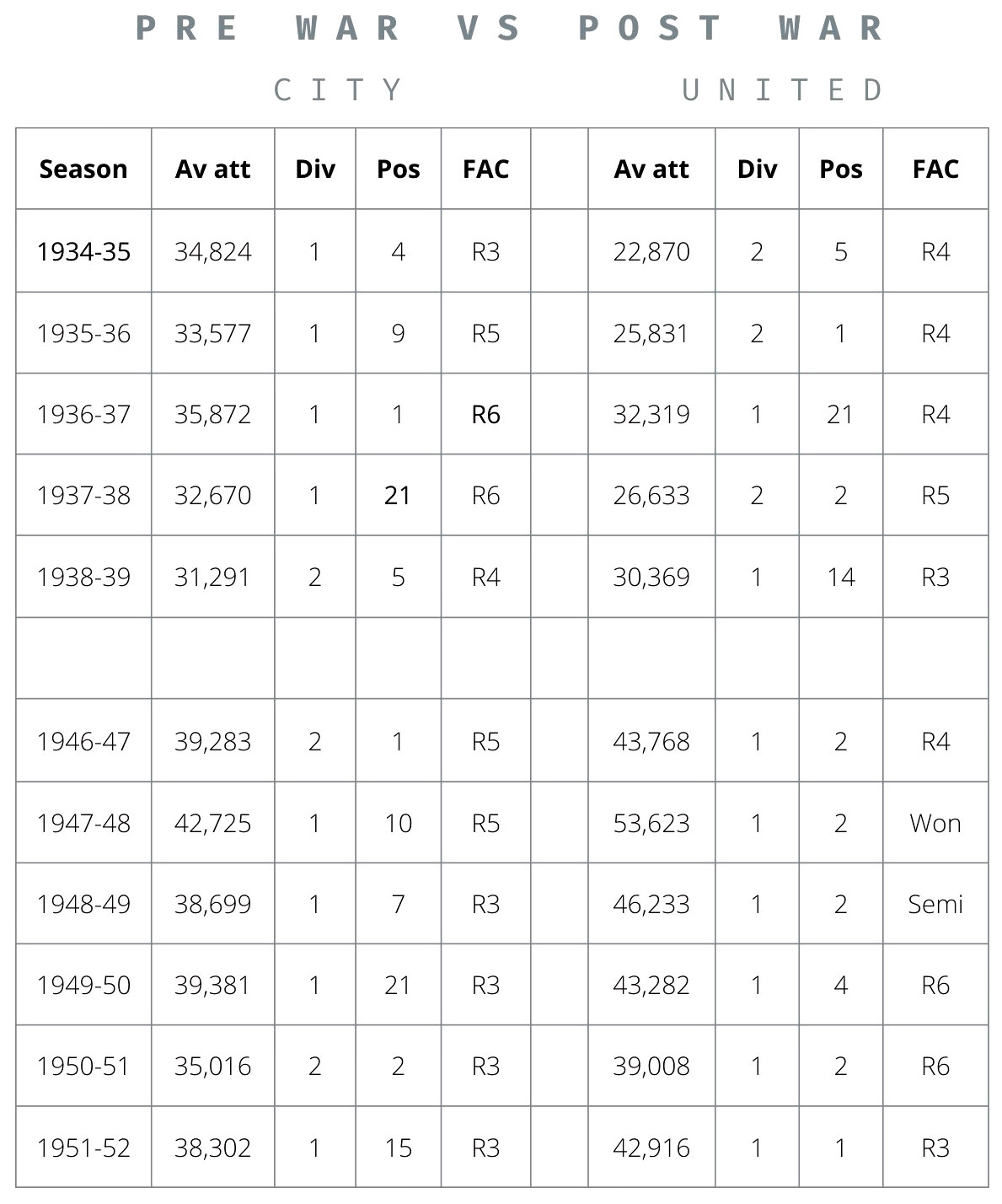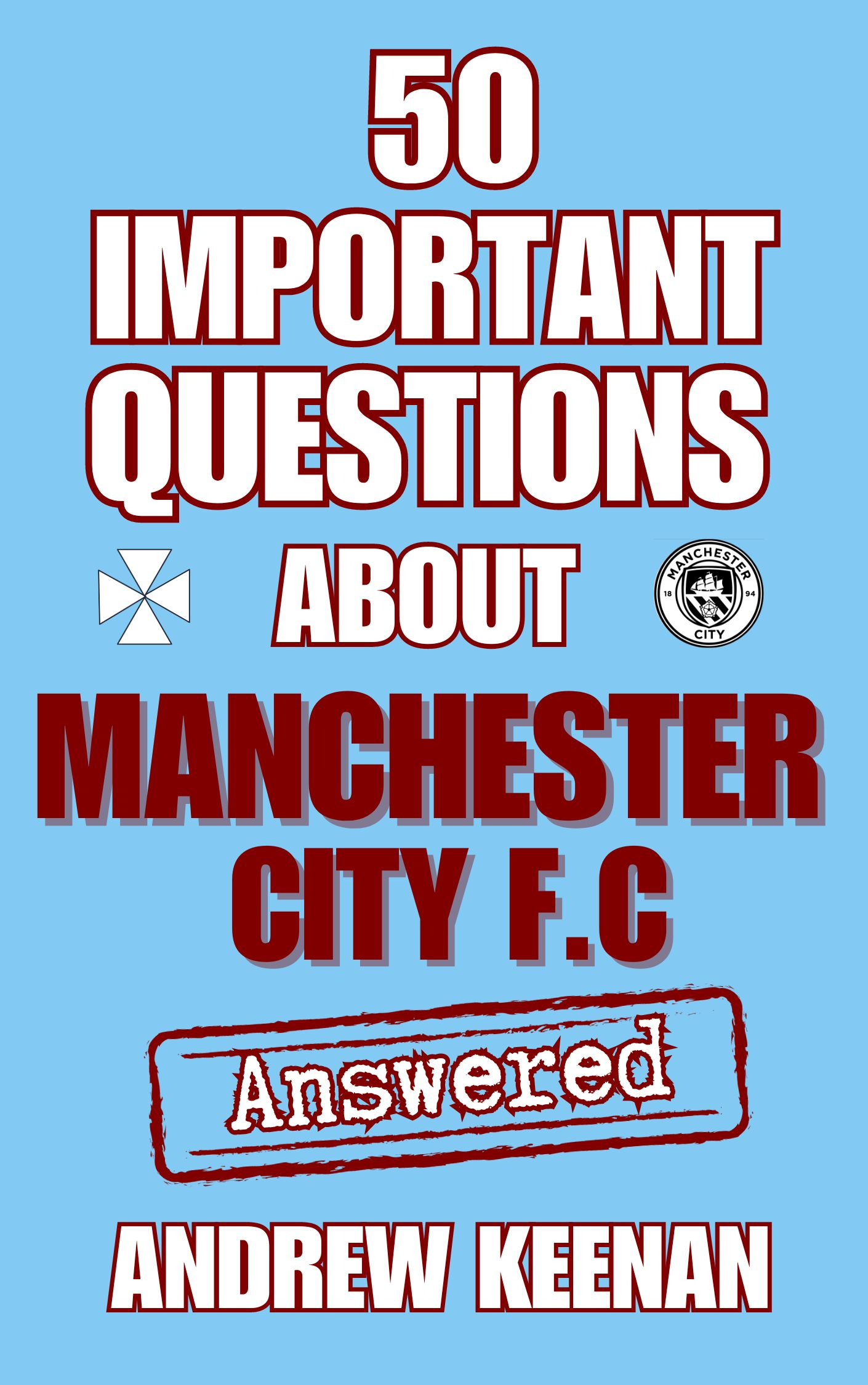Who benefitted most when United shared Maine Road with City?
On 11 March 1941 the Luftwaffe launched a bombing raid on the heart of football in Manchester. They missed by 1.5 miles, and ended up hitting United's Old Trafford ground.
When the Football League resumed in August 1946 the ground, which had been further damaged in a later raid, was unfit to use.
The solution was to share Maine Road for three seasons. The deal seemed a good one for both clubs, with United agreeing to pay an annual rent of £5,000 plus 10% of gate receipts. City also got the use of United’s The Cliff training ground for reserve matches.
United were in a perilous financial state at the end of WWII. According to Anton Rippon's Gas Masks for Goal Posts, the club had a £15,000 overdraft and had to wait until March 1948 before the War Damage Commission awarded them £17,478 to rebuild Old Trafford.
Their stay at Maine Road provided a huge financial boost. In October 1949 the Manchester Evening News reported that United had made an aggregate profit of £75,000 over the three seasons there. Another report claimed they were £100,000 in the black by 1948. The Evening News also noted that the 1949-50 season, when United returned to Old Trafford, was not expected to be as profitable. The paper wrote:
‘Attendances at the remodelled Old Trafford are limited to 60,000 and therefore, United might not be able to show such handsome dividends at the end of the current season.’
But the ground share also produced an unexpected bonus for them. With a spirit of post-war unity still strong, many City fans started watching United games. What they saw contrasted starkly with their struggling side.
In 1938 James Gibson, probably United's greatest ever chairman, had created the Manchester United Junior Athletic Club, a precursor of today's academies. After the War, he appointed former City wing-half Matt Busby as manager. He also gave Busby complete control of footballing matters, a highly unusual occurrence in those days.
Busby quickly blended Athletic Club graduates into an exciting attacking side. They finished runners-up in the League in all of the three seasons they were based at Maine Road, and in 1948 won the FA Cup.
The contrasting fortunes of the two clubs appears to have brought about a notable shift in their relative fan bases.
In the 1980s City's chief scout, Harry Godwin, recalled the drift in support towards United after the war:
“Because they were a better team than City [United] took over a lot of the support of the men whose loyalties had strayed while they were away in the services, and of those youngsters who were just getting interested.”
Here are the attendance figures for the five seasons before and after the war, along with each club's League and FA Cup finishes:
The drift towards United solidified once they returned to Old Trafford in 1949. The move appears to have prompted many Mancunians, particularly younger fans, to choose one club over the other. In Gary James' Manchester – A Football History, lifelong City supporter James Dowd remembers the switch of loyalties from his school days:
“When United moved back to Old Trafford several of my former Blues moved with them. They preferred to watch the more successful team. Illogically I felt they were traitors. Go to Old Trafford? Never! It was a football lesson that a successful team will attract hangers-on.”
So there we have it. City's post-War decline, and United's rise, was all Hitler's fault.
This is an extract from my new book, which will be available on Amazon on Sunday.
On Mondays, paid subscribers will receive an exclusive weekly story in their inbox. These will reveal some of the dodgy things I’ve experienced while working in national newspapers.. I’ll also be sharing some of the things I’ve discovered about City’s past that are best not posted publicly.
Each month there will be two other stories only available to paid subscribers.
You can subscribe for free, or upgrade to a paid subscription, by clicking the button below.
Or if you want to help out with a one-off donation you can Buy Me A Coffee.



